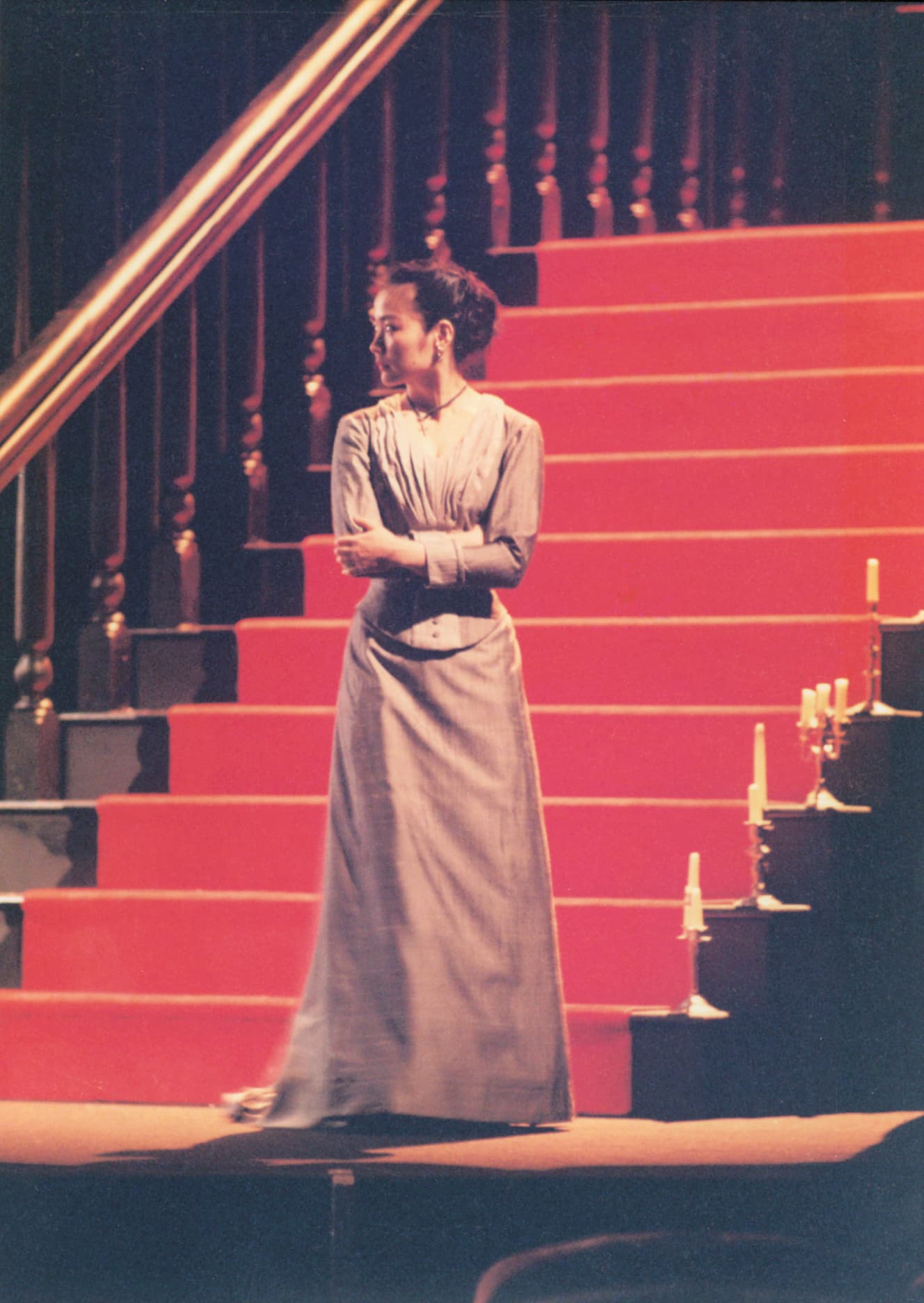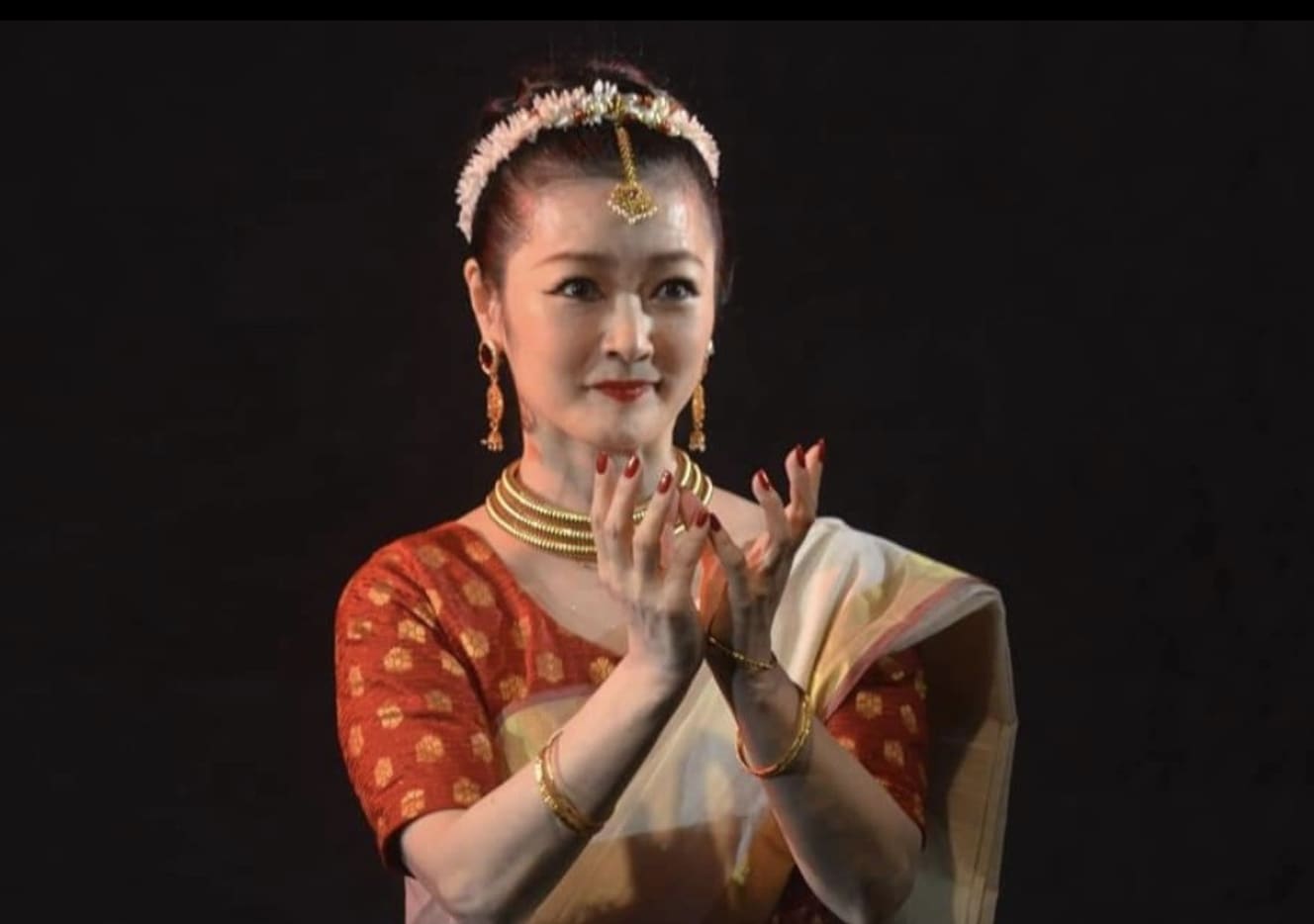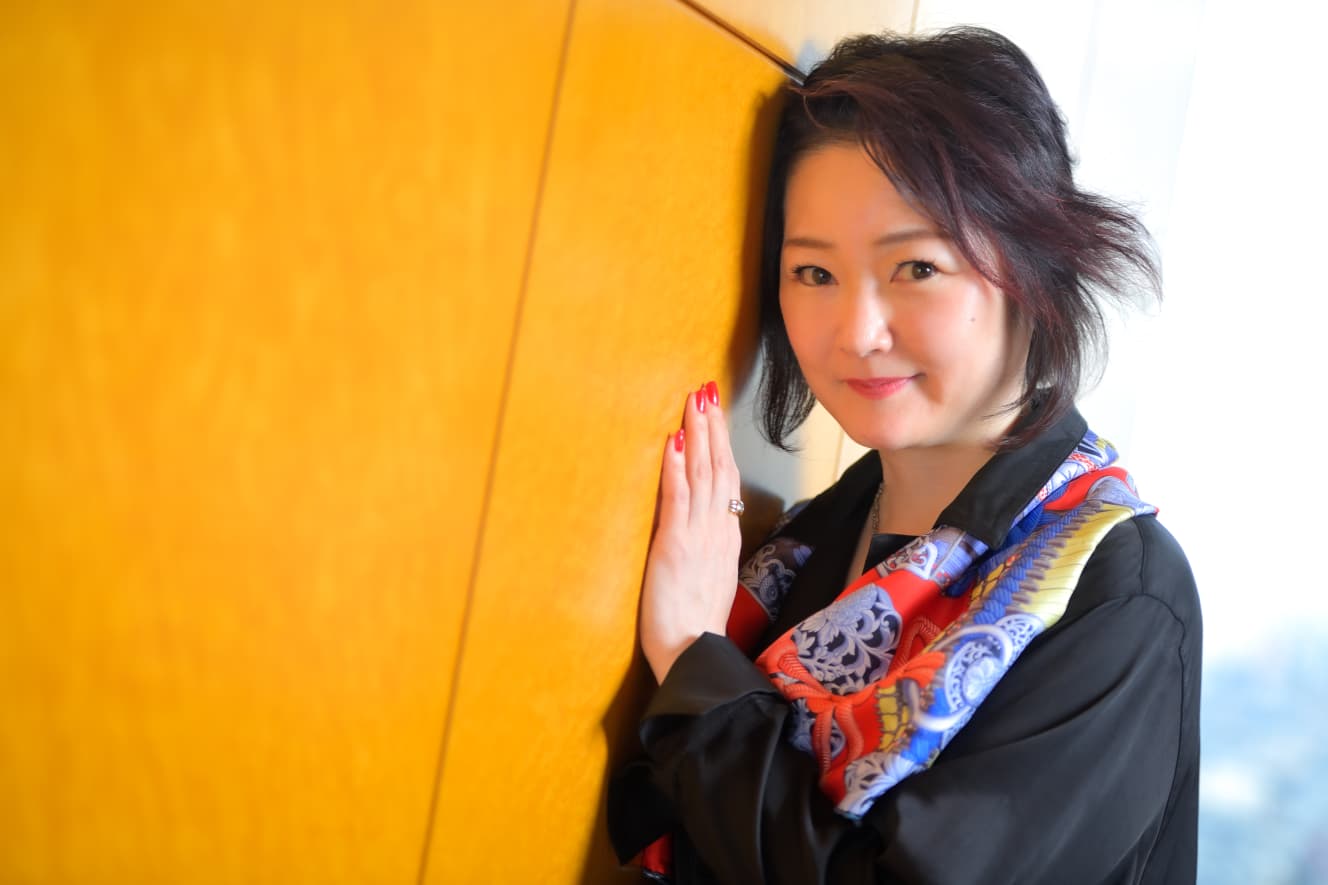A Takarazuka alumni, who was opened up to the world by Mikuni Rentaro, has started “giving back.
Former Takarazuka actress Yoko Ueno looks back on her 40-year career as a performer this year. Former Takarazuka actress Yoko Ueno looks back on her life.

Yoko Ueno, who joined the Takarazuka Revue in 1982 and celebrated 40 years of artistic career this year, was blessed with a new job soon after she left Takarazuka, where she was a member for seven years.
She appeared with Rintaro Mikuni (deceased) in Hiroshi Teshigahara’s film “Rikyu” screened in 1989, and four years later in 1993, she met the singer Miyuki Nakajima. Since then, she has appeared in four performances of “Yoru-kai. She also expressed her mixed feelings about not being able to give birth to a child, despite being blessed with good fortune that everyone envies in her work. Now that the Covid-19 disaster has struck, Ms. Ueno has started a new activity, saying, “I want to be useful where I am needed.
She opened her own door to the relationship with Yoshio Harada.
I’ve been lucky my whole life, and I’ve been helped by it. My life has been lucky, and I have been helped by it, so I felt that I should return the favor that made it possible for me to do so, and I have actually started some activities. If I can shine brightly in a place where I am needed, and that makes other people happy, I will be happy.
As mentioned in the article “The life of a Takarazuka alumna who was eagerly asked by Miyuki Nakajima to perform with her…”, there is no doubt in my mind that I have been blessed with so much good fortune in my life. She entered the Takarazuka Revue, which she had admired since she was three years old, and stood on the same stage as Mao Daichi, Hitomi Kuroki, and Kenko in the Tsuki troupe.
After she left the troupe and became an actress, Mikuni introduced her to Hitoshi Moni, who was a producer at Shochiku at the time. Through her relationship with Mr. Moni, she was able to work with world-class directors such as David LeBeau, who directed the Broadway version of “Romeo and Juliet” in 2013, and Robert Alan Ackerman (deceased), who directed Richard Gere’s “BENT”.
Mr. Ueno may have had an inherent strength of luck. However, Mr. Ueno himself did not rely solely on the strength of his luck. She would go to people she found attractive and wanted to talk to.
I think I got my energy from my mother. My mother’s age is a secret, but she still goes to live music clubs, plays, and Takarazuka by herself. I have seen my mother like this, so I think I will find something interesting and something I like and go for it. I am grateful to my mother.
The opportunity to be connected with Yoshio Harada (deceased), who was active as an actor and singer and received the Medal with Purple Ribbon in 2003, was created on his own.
I’ve admired him since I saw him on TV when he was active at the same time as Yusaku Matsuda. I have three older brothers, and I was attracted to his outlaw style, which my older brothers did not have. At the time, I was just a fan.
When I was 19 years old, I was in the Takarazuka Revue, and when I had a little time on my hands, I heard that Ms. Harada was singing at a live music club, so I went alone to listen to a live music club concert in Kobe with a single rose… (laughs)”.
It didn’t end there. (laughs)” It didn’t stop with just going to see the concert. After the concert, I approached the staff at the venue and asked them how to wait for me to come out, and miraculously I was able to meet her.
Then, in between performances at the Takarazuka Revue, I began to visit Harada to listen to his live performances. As he became more and more familiar with Harada’s face, he was asked to participate in a mochi-tsuki (rice cake pounding) party at his house at the end of every year, to which his fellow actors and staff were invited. Mr. Ueno recalls.
Mr. Harada is a big brother, and he really cares about the people around him. He doesn’t make people nervous when he talks with them, and when I visit him, he doesn’t let me say, ‘Is it okay if I stay here? Like Mr. Harada, Ms. Mikuni, and Ms. Miyuki Nakajima, everyone was completely relaxed, and they made me feel as if they were really talking to me here, not on the stage or behind a CRT. -They made me feel as if they were really talking to me here.

When we started to talk about the play in depth, Harada told me, “You have to play the play seriously.
Those words are important words that I still repeat to myself.
I think he meant that I should go all the way until I enjoy myself (even though I have to be nervous on stage).
To prepare for his role in “Dotsuitarunen,” a Japanese film about boxing that was screened in 1989 and later won the Blue Ribbon Award, Harada fished for dummies in his yard and trained five to six hours a day in boxing. Like Harada, I want to be a person who is not overwhelmed when I am with him. And when it comes time for me to step out on the stage, I want to be prepared enough to enjoy myself.
Why did I start coming to Nasu as a volunteer?
When I think about it, the overseas directors that Mr. Ueno has worked with, such as the aforementioned David LeBeau and Robert Alan Ackerman, have said the same thing as the “greats” that he has worked with in the past.
It’s always relaxing,” “Hako! It’s good to have that natural feeling.
This constant reminder to “relax” and “unwind” has made Ueno more aware of the importance of relaxing her shoulders, and has led her to create new work. Mr. Ueno started “hako’s be exercise”. The “hako’s be exercise,” which Ms. Ueno started, is in high demand, especially overseas, as a “theater exercise” to relax in the theater world. Ms. Ueno continues.
Theater exercise, to put it simply, is training to know oneself and to communicate with others. It is mainly used by actors, but the more I tried it, the more I thought it would be great if ordinary people could have it too.
In the world of actors, you suddenly have to become lovers with the person you are playing the role of ‘Nice to meet you’, every day. How do you bridge that tense distance? This point is not limited to actors, but can also be applied to couples who have quarrels, or to parents and children who are in the rebellious stage of life, and it helps to relax the heart. In fact, I’ve even done the exercise for foreign insurance salesmen.
In October last year, after the declaration of a state of emergency for the new coronavirus was lifted, she began to visit the Mori no Owl Club, a living and learning salon in Nasu-machi, northern Tochigi Prefecture, once a month.
A friend of mine, who runs a day-care service, asked me to sing for her, and I started coming as a volunteer. Ms. Ueno, who also relieves stiff shoulders with her unique breathing and stretching techniques, was delighted to correct the tone deafness of the elders by calling it “Karaoke Day.
One of the participants said, “I haven’t heard live singing in 20 years. I was moved to tears. I feel like all the people I’ve met and all the things I’ve honed as my art through their help are for this purpose.
This year marks the 40th anniversary of Ms. Ueno’s joining Takarazuka.
“Meguru, meguru yo, jidai wa meguru…”
As Miyuki Nakajima’s song “Jidai” says, in life, there are encounters and partings, but that is all part of fate. If I can share the blessings of good fate with as many people as possible that I meet for the first time, I will be happy.
With a verse from Miyuki Nakajima’s “Jidai”, which I adore from the bottom of my heart, in my heart, I will continue to go to places where I am needed.




Photo by: Koki Nagahama